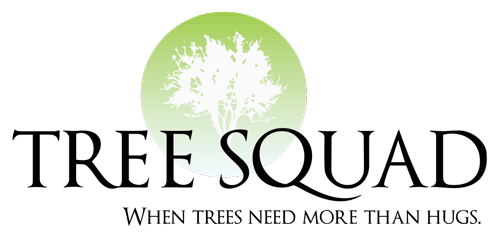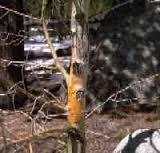Cytospora Canker
Attacks:
Colorado blue spruce, Norway spruce, Douglas fir, hemlock and balsam fir
What you will see:
- Affects low branches and progresses upward
- Cankers form at the base of small, infected branches
- Elliptical
- Diamond-shaped
- Bluish white pitch covers the cankered area
- Spores are produced in the cankered area of the bark
Life cycle:
- Infects old trees and young trees in poor environments
- Moisture induces spore formation
- Orange-colored tendrils of spores
- Spread by splashing rain and wind
- Infection takes place most frequently during spring and fall
- Spores infect wounds or other weakened tissues
Cultural practices:
- Avoid bark and stem injuries
- Control insects and mites
- Prune affected branches in fall or early spring
- Sterilize pruning tools between cuts
- Enhance vigor
- Reduce stress in environment by reducing or enhancing watering
- Increase tree vigor with Tree nutrition
Chemical control options are not available


